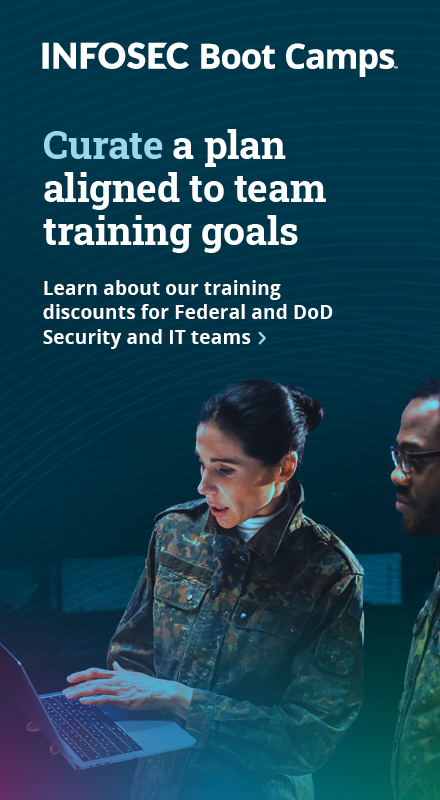PMP certification cost and requirements (2024): Your complete preparation guide
The Project Management Professional (PMP) certification proves that you can manage people and business processes while guiding an organization toward its goals. In IT and cybersecurity, PMP certification shows that you understand how to achieve high-level objectives by aligning technical skills and IT processes and tools.
As cybersecurity projects become more integrated across organizations and departments, professionals with project management skills have become increasingly valuable for their ability to identify human and other resources and leverage them in connection with growth objectives. Also, because a company has so many tools and techniques at its disposal, it takes a skilled project manager to prioritize which ones to use and then optimize their effectiveness.
Earn your PMP, guaranteed!
Enroll in a PMP Boot Camp and earn one of the industry’s most respected certifications and enjoy exam insurance.
Understanding PMP certification
The PMP certification is recognized around the globe as an industry-standard credential. As such, it provides evidence of your ability to manage a range of projects using proven best practices, no matter where you are.
PMP-certified professionals play a central role in managing complex projects, including those in cybersecurity. A project manager often takes the helm to ensure the team meets its short- and long-term objectives without going over budget.
For example, suppose a company has been in business for about five years and has grown to the point where it needs to open a new office. The plan is to use an on-premises server to host a web application, a customer relationship management (CRM) app and a continuous backup system. However, before starting the project, they decided to use you as a project manager to address potential cybersecurity issues.
In this role, you may have to:
- Define the scope of the project and come up with development phases that the team can use as benchmarks
- Decide which human and technical resources you’ll need
- Perform a risk assessment based on the current architectural plan
- Organize quotes from different departments to make sure your risk assessment includes a broad range of potential issues
- Establish a system for monitoring and controlling the progress of the project
- Conduct a review after the team’s solutions have been implemented to gauge the effectiveness of the project
In this scenario, after performing a risk assessment, the team may decide that it makes more sense to use a cloud-based service to establish your digital infrastructure. In this way, you can take advantage of the cybersecurity tools that your cloud provider has access to. Regardless of what the team decides, as the project manager, you’re responsible for ensuring things move ahead on schedule and evaluating the success of the endeavor.
By earning your PMP certification, you prove to employers that you have these and other skills.
PMP certification requirements
To qualify for your PMP certification, you need to have met at least one of the following requirements:
If you have a four-year college or university degree, you need:
- At least 36 months of experience with leading projects over the past eight years
- At least 35 hours of project management education or your Certified Associate in Project Management (CAPM) certification
If you don’t have a four-year college or university degree, but you have a high school or secondary school diploma, you need:
- 60 months of experience with leading projects over the last eight years
- 35 hours of project management or training or CAPM certification
Even if you have extensive experience in project management, it’s important to obtain formal education and training hours. This way, you will learn the techniques and methodologies most used in the modern business environment and gain an understanding of the concepts and approaches that the exam will cover.
In effect, instead of merely knowing how to manage projects, you learn to “speak the language” of the exam. Because the training programs expose you to best practices, you put yourself in a better position to succeed in a range of industries, including cybersecurity. You walk away from the training with specific management methodologies and the language you need to convey them to those you work with.
PMP certification process
Getting your PMP certification begins with the application process. Your first step is to make sure you’re eligible to use the PMP requirements at the beginning of the above section.
You also must document your experience in connection with the project management experience and training you have received. For example, you can document the places you’ve worked, your job title and responsibilities and how long the projects lasted.
When documenting your training, you want to highlight courses you’ve taken, such as a PMP Certification Boot Camp, the number of hours involved with each training program and any prep courses you’ve completed.
Once you’ve verified that you qualified to take the exam and documented your experience and coursework, it’s time to fill out and submit a PMP application. To do this, you have two options: take the exam as a Project Management Institute (PMI) member or as a non-member. As a non-member, the exam fee is higher, as discussed in the following section.
Once your application has been approved, you have up to one year to take the exam, and you can take it as many as three times over that year. The test consists of 180 questions, and you have 230 minutes to complete them.
Earn your PMP, guaranteed!
Enroll in a PMP Boot Camp and earn one of the industry’s most respected certifications and enjoy exam insurance.
PMP certification costs
The fee to take the exam is $425 for PMI members and $595 for non-members (however, you should confirm the current cost on the PMI website). If you want to become a member, you can set up a PMI account and follow the PMP application process step-by-step. PMI membership costs $159 per year, but you may be able to get a discount if you’re a student, retiree or part of a group.
When calculating the cost of PMP certification, you also have to factor in the price of study materials and preparatory courses. This can range from very little if you use free materials like renting books from the library to a few thousand dollars if you take a live PMP boot camp.
After earning your PMP cert, you have to renew it every three years. This PMP renewal process requires 60 total Professional Development Units (PDUs), including at least 35 that you can earn using courses and events — some of which will come with a cost.
However, you can likely recoup your investment once you land a solid cybersecurity project management job. According to our salary analysis, the average U.S. PMP salary is $136,121 Considering this earning potential, it may be a good ROI to invest some resources into getting certified.
This is especially true when you consider the central role that cybersecurity project managers play in the modern business ecosystem. By earning your PMP certification, you put yourself above other applicants because you provide evidence of your project management skills and problem-solving ability. This makes you more attractive than other candidates and more likely to land the high-paying position you want.
Impact of PMP certification on cybersecurity careers
There’s a growing demand for project managers who can effectively lead cybersecurity initiatives. This is especially true due to the complex nature of cybersecurity and the wide variety of approaches to defending digital assets. By earning your PMP certification, you differentiate yourself from others in the cybersecurity field by demonstrating your ability to execute and maintain effective defense programs.
PMP certifications and cybersecurity certifications work hand-in-hand because they consist of complementary skills. For example, as a cybersecurity manager, you may want to earn your CISSP certification to validate your technical skills and your PMP skills to validate your project management skills. Likewise if you’re a cybersecurity analyst or cybersecurity engineer, you may want to pair a CompTIA CySA+ or CASP+ certification with a PMP to show hiring managers you have the knowledge to both meet their technical needs and lead project implementation.
Future trends in project management and cybersecurity
Several trends are emerging in the project management field that have significant implications for cybersecurity. For example, there has been an increased focus on automation in project management. While implementing a dynamic cybersecurity project, you can automate the mitigation strategies you use by integrating data you gather while monitoring for threats.
For instance, suppose your threat monitoring system reveals that data exfiltration attacks have targeted your organization. You can automatically integrate this data into your project management software. Then, you can leverage it to decide how you’ll design your next cybersecurity project. For example, you may source, install and configure next-generation firewalls, which can detect suspicious data movement and automatically stop it.
Another trend dominating project management is using performance data to evaluate successive projects and then decide how to improve future efforts. Using cybersecurity performance metrics, you can isolate which defense technologies have been the most effective. Then, you can perform cost/benefit analyses and compare different tools based on their ROI.
Even after you earn your PMP certification, it’s crucial to continue to gain more skills and learn more about the industry. This is especially important because both cybersecurity and project management change so quickly. New technologies, such as machine learning and artificial intelligence, provide unique opportunities for project managers to gain a competitive edge. At the same time, new tech can also be a two-edged sword in the cybersecurity arena.
Artificial intelligence has introduced new and more potent attack vectors. But it has also created novel ways of automating cyber defenses and uncovering and mitigating a wide range of threats.
By staying abreast of the latest and greatest developments, you make sure you don’t fall behind others in your industry. Keeping yourself informed will be especially important as PMP-certified cybersecurity professionals evolve into leadership positions.
A PMP-certified pro’s project management skills enable them to deliver high-quality results faster and more consistently. This makes them more qualified for managerial and team-lead positions.
PMP certification and cybersecurity
PMP certification aligns perfectly with cybersecurity because it attests to your ability to systematically create and implement solutions that can strengthen an organization’s security posture. Instead of merely producing ideas, you can leverage proven best practices to assess needs and then address them.
You should consider PMP certification as part of your career development plan, especially if you’re looking to specialize in managing cybersecurity projects. When organizations know you have the skills needed to evaluate their needs, choose the best solution, ensure it’s implemented correctly, and assess its success, they’ll have more confidence in your ability to deliver effective cyber solutions.
FAQs
What are the prerequisites for PMP certification?
As noted above if you have a four-year college or university degree, you need at least 36 months of experience with leading projects over the past eight years as well as at least 35 hours of project management education or your CAPM. If you don’t have a degree, the experience requirement is increased to 60 months.
How much does it cost to get PMP certified?
The costs can change, but at the time of this writing, the current exam fee is $425 for PMI members and $595 for non-members. Other costs include preparing for the exam, which can vary depending on the materials you buy and the courses you take.
How does PMP certification impact career opportunities in cybersecurity?
PMP certification can boost your career opportunities in cybersecurity by demonstrating your ability to deliver successful solutions in a systematic way using tried-and-true best practices. These skills translate well into cybersecurity because the complex threat environment demands a systematic yet creative approach.
Where can I find more PMP training resources?
For more information on the PMP exam and how to prepare for it, check out our PMP certification hub.


